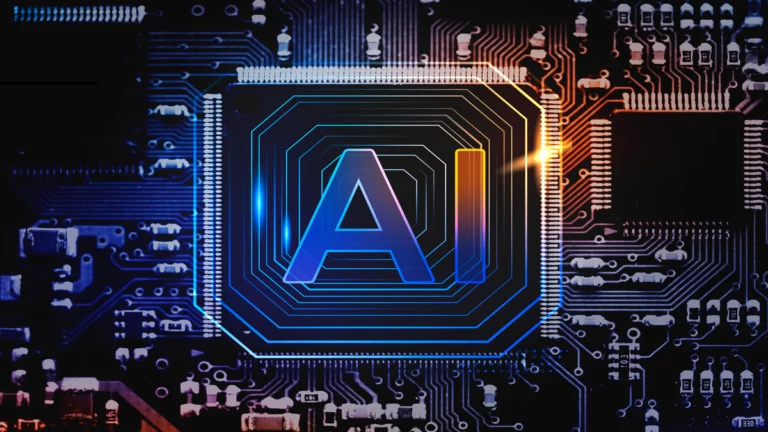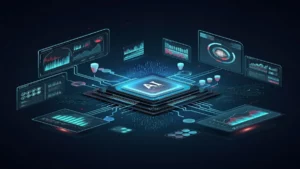The increasing capabilities of artificial intelligence have paved the way for a groundbreaking advancement in automation — the emergence of ai agents. Moving far beyond traditional chatbots or scripted digital tools, these autonomous AI systems represent the next frontier in intelligent automation.
Designed to execute tasks independently, adapt in real time, and collaborate with other systems, AI agents are redefining personal productivity, AI business automation, and digital transformation. Whether scheduling meetings, managing workflows, or generating market insights, these systems promise unprecedented efficiency and accuracy.
As we approach 2025, these emerging AI technologies are no longer futuristic concepts — they’re active players in modern business operations, setting the stage for the future of work AI.
What are AI agents?
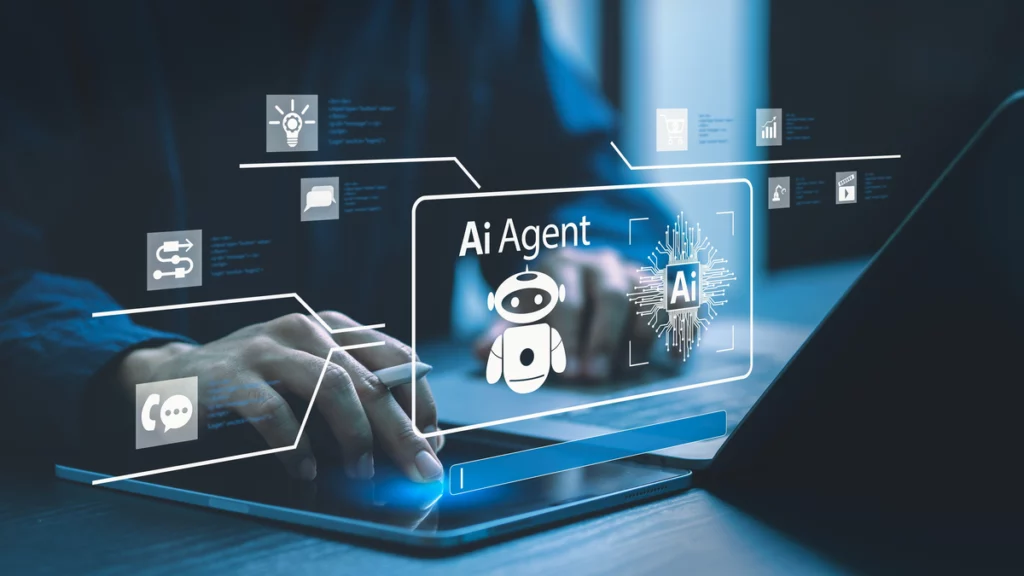
So, how do AI agents work exactly?
At their core, AI Assistant or ai agents are intelligent software entities driven by large language models and machine learning algorithms. Moreover, these agents can autonomously perceive their environment, understand goals, execute tasks, learn from feedback, and adjust strategies.
Unlike traditional chatbots that follow scripted interactions, the assistant can:
- Interpret open-ended prompts
- Break tasks into sub-tasks
- Execute workflows with minimal human input.
- Iterate and refine their performance.
See how 𝐀𝐈 𝐀𝐠𝐞𝐧𝐭𝐬 𝐀𝐫𝐞 𝐓𝐚𝐤𝐢𝐧𝐠 𝐎𝐯𝐞𝐫!
This fundamentally differentiates AI agents from chatbots in the “AI Agents vs Chatbots” debate. While chatbots handle surface-level conversations, AI agents manage deeper, dynamic tasks. Their ability to think, adapt, and act positions them as vital tools for the next generation of intelligent automation tools.
From ai agents to Autonomous Intelligence
Many remember when asking Siri or Google Assistant for weather updates felt revolutionary. That was the beginning of assistant technology. Today, we’ve evolved to autonomous AI agents like Auto-GPT and AgentGPT, which can independently conduct research, complete reports, and even build websites.
1. Auto-GPT and AgentGPT: Leading the Charge
Platforms such as Auto-GPT and AgentGPT are central to the AI transformation. Additionally, these tools allow users to input high-level goals — such as “analyze the top 5 electric vehicle stocks” — and the AI handles the rest:
- It breaks the goal into subtasks
- Gathers and analyzes data
- Synthesizes the information
- Presents actionable insights
AgentGPT, in particular, simplifies access by allowing users to launch agents directly from their browser, with no coding experience required. It exemplifies the growing trend of AI workflow automation tools that are both accessible and highly capable.
Furthermore, these tools are ushering in a new standard for AI business automation, where tasks like report generation, email drafting, and market research can be completed in real-time without constant human direction.
Emotionally Intelligent AI: Replika and Pi
While some agents focus on execution, others focus on AI personalization and emotional engagement. Tools like Replika and Pi (developed by Inflection AI) demonstrate AI’s evolving potential to connect with users on a more human level.
- Replika is designed as a digital companion, holding meaningful conversations that evolve. It builds a profile of the user and provides empathetic responses.
- Pi aims to become your “personal intelligence,” offering support and personalized advice in a conversational, emotionally attuned manner.
Indeed, this reflects a key trend: the shift toward AI agents for personalization, where the goal isn’t just to do tasks but to understand how users feel about them. These emotionally aware AI systems are pushing the limits of how AI agents work by incorporating both logic and empathy.
Orchestrating AI Workflows for Business Automation

As AI technology matures, businesses move beyond single-task automation to orchestrated, multi-agent workflows. This new model leverages AI workflow automation by assigning specific tasks to specialized agents — all working in sync.
Real-World Scenario
Consider a business aiming to create a SaaS pitch deck:
- Agent A performs market research on trending SaaS ideas.
- Agent B visualizes the data into graphs and charts.
- Agent C drafts the pitch deck, and
- Agent D (like Pi) composes a personalized summary email for investors.
For instance, this system exemplifies AI agents for business automation, reducing manual oversight while increasing precision and speed. Businesses can deploy such workflows to:
- Conduct competitive analysis
- Automate customer responses
- Generate custom content
- Monitor operations in real-time.
These intelligent systems work like digital teams, replacing hours of human effort with streamlined, scalable solutions.
Transforming Industries: Intelligent Automation in Action
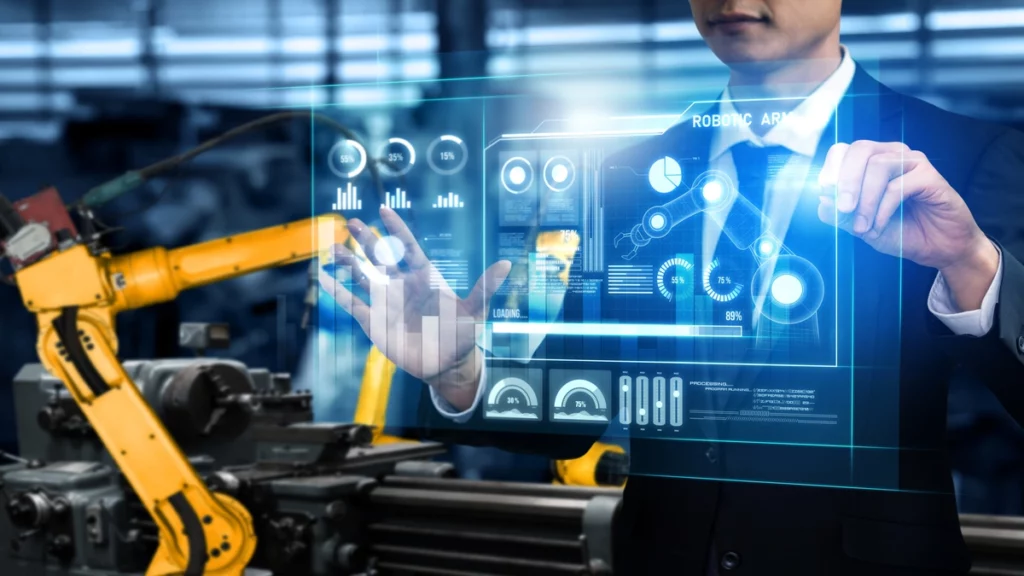
The deployment of AI agents is, however, rapidly transforming major industries through intelligent automation. Here’s how:
1. Customer Support
AI agents can manage full customer service interactions — including understanding tone, offering tailored solutions, and escalating complex issues. Projections suggest that by 2030, autonomous AI systems could handle up to 70% of customer support.
2. E-Commerce
AI agents in e-commerce are assisting with:
- Inventory optimization
- Dynamic pricing
- Responding to reviews, and
- Providing real-time support
Additionally, they act as 24/7 AI assistants, optimizing back-end operations and customer-facing interactions.
3. Marketing and Communications
Marketing departments are using AI agents to:
- Plan and schedule content
- Analyze campaign results
- Draft high-quality promotional material, and
- Recommend strategic pivots
These tools are fast becoming integral to AI business growth strategies.
Human-AI Collaboration: A New Superpower
In fact, the rise of AI doesn’t signal the end of human roles — instead, it marks a shift toward human-AI collaboration. While machines handle repetitive, data-heavy tasks, humans are freed up for creative, strategic, and emotional work.
Use Cases:
- Writers leveraging AI for idea development
- Designers exploring new concepts with AI input, and
- Engineers optimizing design and testing cycles
This collaboration between human intelligence and autonomous AI capabilities defines the future of work AI. It’s not about competition — it’s about augmentation.
Also read:
- Google Aims at Misinformation with New Image Search Features
- Top AIO Coolers for Gaming PCs in 2023
- Unveiling the Roblox Phenomenon: Can You Play Roblox PS4?
- The Significance of Business Impact Analysis in Cybersecurity
Personal AI Assistant and Concept of Digital Twins
Looking ahead, ai agents are evolving into personalized digital twins — AI versions of ourselves that anticipate our preferences, behaviors, and emotional states.
These assistants could:
- Manage your schedule
- Curate relevant news and content
- Suggest meaningful connections, and
- Navigate social and professional tasks.
This next generation of AI personalization tools will turn AI from a utility into a digital extension of the individual — tailored, proactive, and intuitive.
Addressing Ethical and Practical Challenges
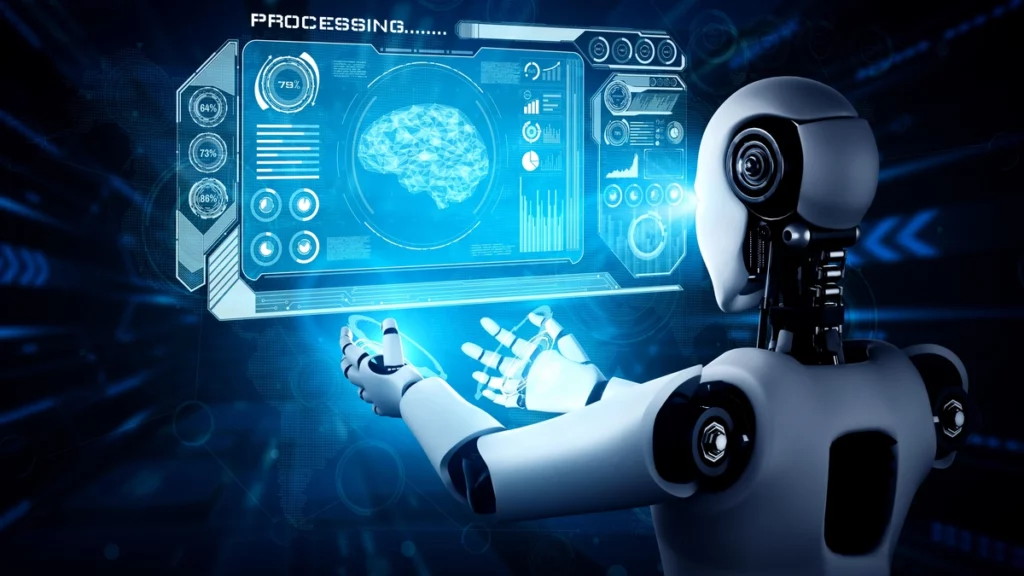
As with any powerful technology, AI agents also come with challenges that require careful attention:
- Data privacy and user consent
- Job displacement and labor market transitions
- Bias in AI decision-making, and
- Accountability in autonomous systems
Addressing these issues will ensure that intelligent automation tools also benefit society equitably and responsibly.
To Get More Updates, Click Here
Conclusion: Embracing the Intelligent Future
Integrating AI agents into daily operations — from customer service and marketing to personalized support and digital companionship — marks a significant milestone in technological evolution. These systems represent the convergence of ai agents, autonomous AI, and intelligent automation into a cohesive, transformative force. Now, as we look toward the future, the role of AI agents in business automation will only deepen. Moreover, these tools will assist us, learn from us, adapt to us, and—in many cases—become digital counterparts working alongside us. The world of tomorrow is not just automated; it’s intelligently orchestrated—and that future has already begun.



